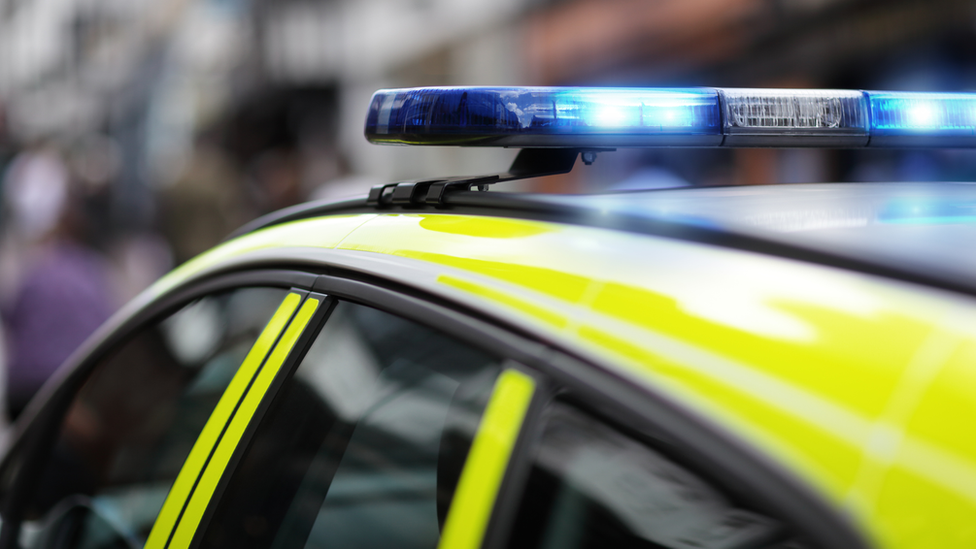Welsh Ambulance Service deploys bicycles to deal with demand
- Published
The bikes allow emergency workers to quickly get to a casualty
Alcohol-related calls to the ambulance service are coming in at all times of day since restrictions were lifted.
Paramedics are being deployed on bicycles to deal with pressure, which had already increased in the past year with more than 100 immediately life-threatening calls daily.
With the nature of the calls now returning to pre-pandemic levels demand is on the rise again, the service says.
Waiting lists have now hit record levels for 21 months in a row.
"Now the pubs are back open, it's going back to the alcohol-related falls, trips and arguments, fights and even domestics," said Steve Bennett, duty operations manager for the Welsh Ambulance Service.
"It does put a lot of drain on our resources and there's definitely an increasing amount of calls we're going to on a daily basis.
"We're trying to cope with that, but there's only so many vehicles we can put out there."
'Quick and nimble'

Using bikes, Steve and his colleague Terry can safely ride slowly through crowds, carrying the same equipment as a rapid response vehicle or an ambulance
When large events, such as the Six Nations, concerts, or simply Christmas shoppers increase the footfall in the pedestrianised area of Cardiff city centre, access for the traditional ambulance is hindered, slowing their response time.
This is where the Cycling Response Unit (CRU) comes into play.
Steve was one of those who helped set up the CRU at the end of 2016 - putting the contents of an ambulance on push bikes, and he continues to work shifts with them, in addition to his day job with the service.
"Trying to get a five and a half tonne ambulance in through the crowds, especially 70,000 people, you don't get anywhere," he said.
"Whereas the bikes are quick, they're nimble, yet they carry the same equipment as a rapid response vehicle or an ambulance - the only thing we can't do is move patients."
It means the bikes weigh 57kg, and staff are trained to safely ride them slowly through crowds.
'Dislocated shoulder'

Michelle Gregory had tripped and fallen in Cardiff Central station and had a suspected dislocated shoulder
On Saturday, BBC Wales spent the day following Steve and his colleague Terry Bowsher, an emergency medical technician (EMT), as the Six Nations came to a close, and tens of thousands of people descended on the capital.
The latter part of the shift had its predictable mix of alcohol-related incidents.
One patient who had fallen was treated and discharged, another who had been assaulted was patched up and put in a taxi to A&E - both avoiding the need for an ambulance.
However, two call-outs in the afternoon underlined the roles key organisations and emergency workers play on busy days in the city centre.
Just before 15:30 GMT a call came in that a woman had tripped in Cardiff Central station - a minute later, Steve and Terry were on the scene.
Michelle Gregory, 62, and her friend had hoped to avoid the queues for the train home to Devizes and left the match early, only for Michelle to trip and fall, leaving the nurse with a suspected dislocated shoulder.
Station staff set aside a space for her to be treated, away from the thousands of passengers being guided to their platforms.
Steve and Terry were able to give immediate pain relief until the ambulance arrived almost an hour later - but it would be another seven hours until their colleagues were able to hand over care at A&E, such was the demand on hospital services.
'Each hour is different'

Steve helped set up the Cycle Response Unit in 2016
Less than two hours later, a second call came in from British Transport Police (BTP) that a man had fallen between the train and platform edge.
Within four minutes, Steve and Terry were on the scene.
BTP officers helped lower Steve to the patient, while Terry handed him the supplies needed, from the platform.
Over the course of the next hour they would be joined by colleagues from a rapid response vehicle, an ambulance, the air ambulance and fire service.
The patient was taken to University Hospital of Wales where he is currently being treated in ICU after suffering life-changing injuries.
Steve said: "Every hour of every day is different, I could start the shift in the morning and go to a road crash, and the last job of the shift I could be delivering a baby."

WILD MOUNTAINS OF SNOWDONIA: Five farming families open their gates and share their lives
LAST CHANCE TO SAVE: Will Millard explores some of Wales’s hidden historic buildings

- Published28 May 2024

- Published17 February 2022
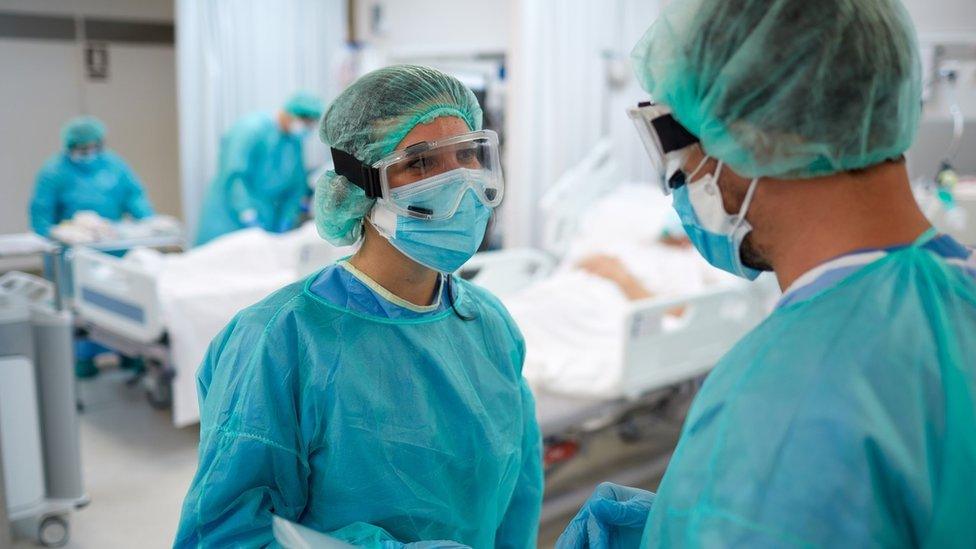
- Published28 January 2022
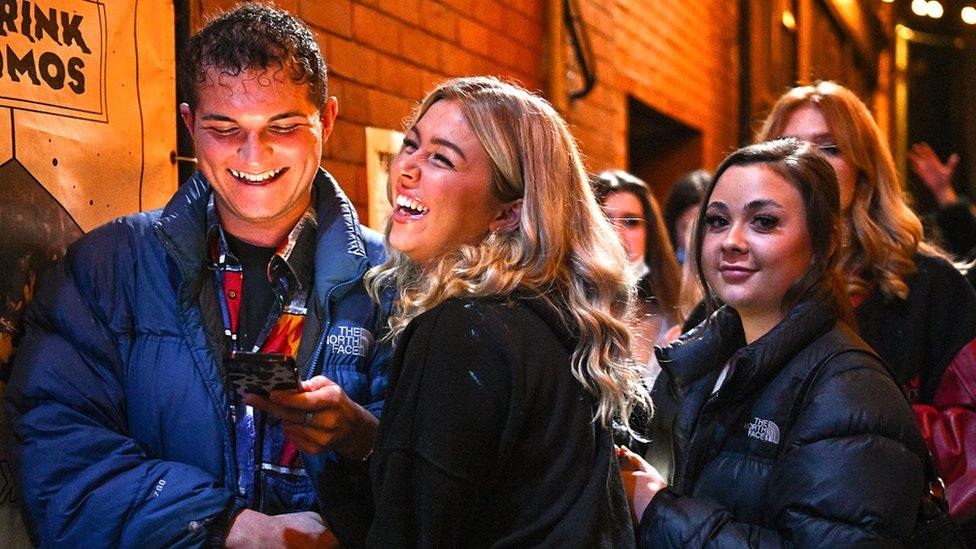
- Published9 January 2022

- Published22 September 2021
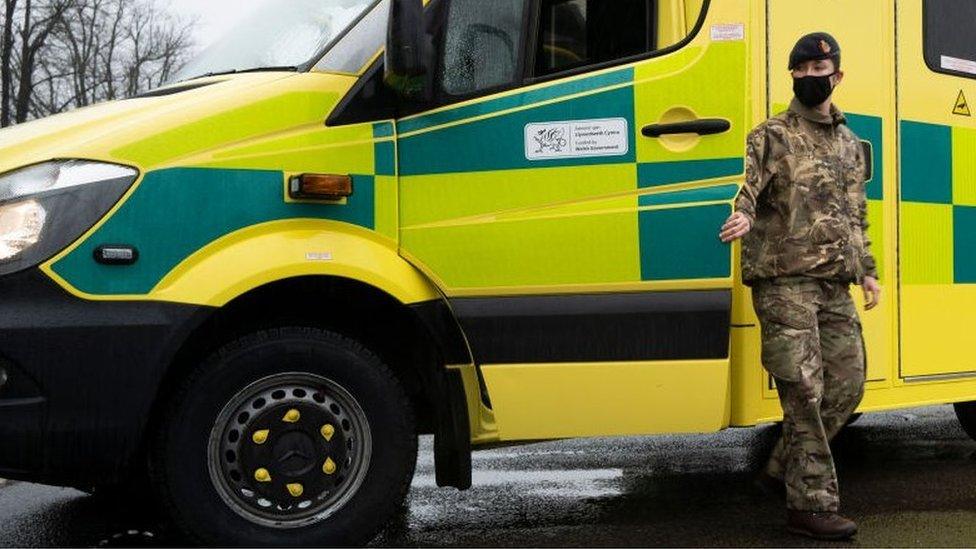
- Published10 August 2021
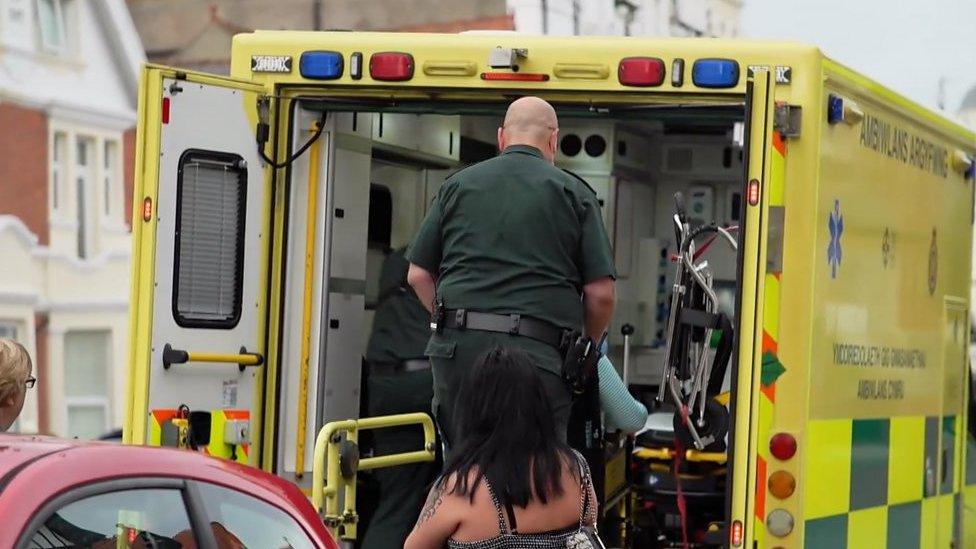
- Published14 July 2021
